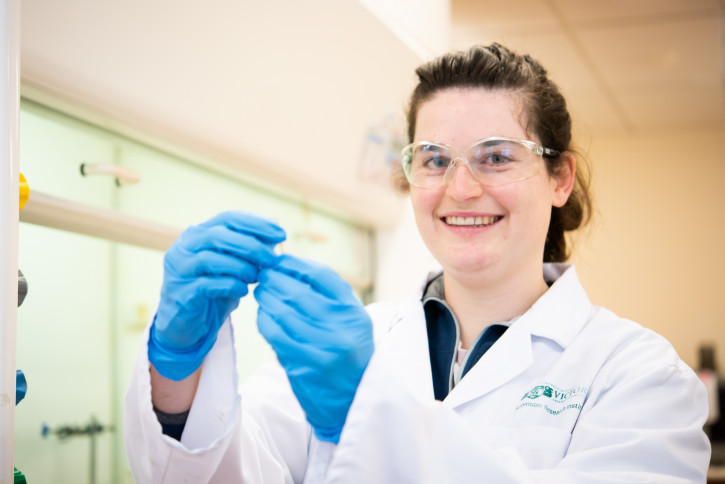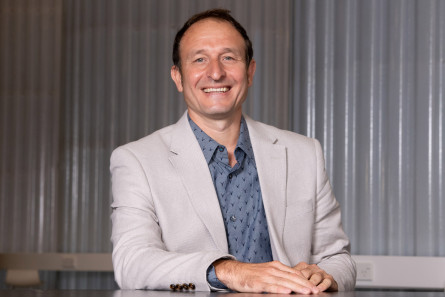This closed-loop process is able to produce vanadium with greater than 99.2% purity. Producing high-quality vanadium here in New Zealand opens up potential access to a NZ$5.9 billion global market.

Vanadium—a silvery-grey metal with a natural resistance to corrosion—is an essential component in the advanced alloys used in medical implants, aviation frames and high-strength steels for use in pipelines, tools and construction. It is also a key component in redox-flow batteries, which are commonly used to store energy at scale in renewable electricity grids.
Vanadium doesn’t occur naturally as a metal. It is usually extracted from steel slags in a highly pollutive process that produces caustic wastewater, dichromate—which is carcinogenic—and corrosive gases. In fact, the whole process is so toxic that New Zealand’s strict environmental regulations mean vanadium cannot currently be extracted here. Instead, the slag is shipped to other countries, where it is turned into vanadium pentoxide. As a usable raw material, it is then sold across the world. Globally, this market is 105,000 tonnes, or around NZ$5.9 billion per annum.
Megan Girdwood, a researcher at Te Herenga Waka—Victoria University of Wellington’s Paihau—Robinson Research Institute, has developed a closed-loop process for extracting vanadium that eliminates waste pollutants and meets the country’s strict regulations for industrial wastewater. Not only is this system designed to ensure much of the energy, water and reagents are recycled and reused, but it also produces very high purity vanadium pentoxide. The ultimate goal is to revolutionise the industry and produce the world’s most sustainable source of vanadium.
Features and benefits
High purity
Greater efficiency
This new process is efficient and can extract up to 98% of the vanadium locked up in the steel slag. This means that more can be produced from the same volume of raw materials, which will ultimately lead to lower costs and higher profit.
Enhancing the value of ironsand
The process could significantly enhance the value of New Zealand’s ironsand and could lead to the development of similar processes to extract vanadium around the world. This will not only deliver greater economic returns to the country, but it will also mean less-toxic chemicals are released into the environment.
Next steps
Megan recently joined the KiwiNet Emerging Innovator Programme, which is designed to give her the tools and skills she will need to successfully commercialise her project. It will allow her to work alongside commercialisation professionals and highly skilled industry mentors to improve her understanding of the relevant markets and use that knowledge to validate and shape her idea.
Over the next 12 to 18 months, the KiwiNet PreSeed funding will help Megan to make her innovation an attractive proposition for suitable investors by establishing a business model and developing her technology into a market-ready product.

